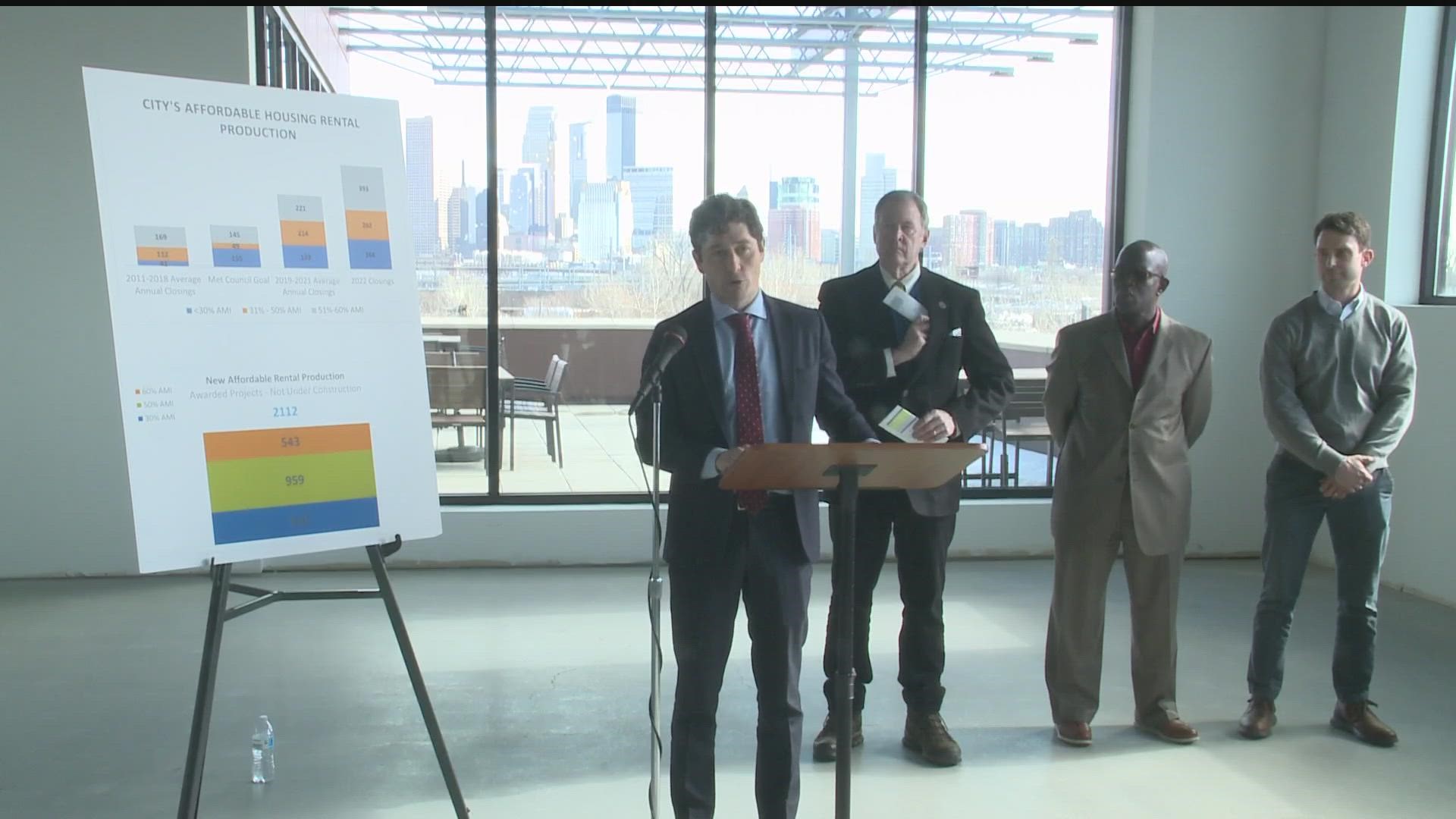MINNEAPOLIS — City and housing leaders say they're making history in the number of affordable and deeply affordable homes being built in Minneapolis.
Deeply affordable means units that are available at or lower than 30 percent of the area median income. At a press conference Wednesday, Mayor Jacob Frey said he's prioritized producing such housing since his first day in office.
"Now about 5 years later, we are producing more affordable housing than we ever have in our city's history," Frey said. "Where we have been investing is having an impact."
According to city data, there were 264 closings on deeply affordable housing for rent in 2022 compared to 41 average annual closings between 2011 and 2018.
"We are producing six times, more than six times the amount deeply affordable, low-income housing than we did in those 7 years," Frey said.
Housing leaders say 30 percent AMI or under can translate to a family of four making about $35,000 a year.
Many of the deeply affordable units developed in recent years are in council member Jeremiah Ellison's ward, including Wellington Management's Currie Commons in the Harrison neighborhood.
"In 2017, when I was first running it was a little bit controversial to say in north Minneapolis that you wanted to invest more in affordable housing," Ellison said. "It was seen as where all the affordable housing already was."
Ellison says, after that, rents increased and incomes did not.
"Obviously we couldn't have seen the economic shortfall that was created because of COVID," he said. "A lot of things that we couldn't have foreseen but the one thing that we did, the one thing that our staff did and that we did as a council and invested in as a city was affordable housing – at mixed levels – but yes, even in north Minneapolis."
The other levels, 31 to 60 percent AMI, are considered affordable whereas the 30 and under is deeply affordable. In total, there were 919 deeply affordable and affordable closings in 2022. Mayor Frey says $320 million has gone into it all since 2019.
"We have very deliberately put money not just into production but into preservation," he said. "Some units that, for instance, had a 15-year span of affordability have been kept on that affordability track even though we were reaching that cliff where they … could transition from affordable to market rate."
Ward 3 council member Michael Rainville praised the state and federal government for helping but emphasized that Minneapolis is a leader in the affordable housing movement.
Frey says 23 projects are already funded to eventually provide more than 2,200 affordable units for families citywide. Last week, the mayor announced his administration’s top priority areas for 2023 and 2024, which include affordable housing and homelessness.
As for public housing, Mayor Frey says in the coming months a multijurisdictional group will form to address the backlog in capital needs.
Watch more local news:
Watch the latest local news from the Twin Cities in our YouTube playlist:

